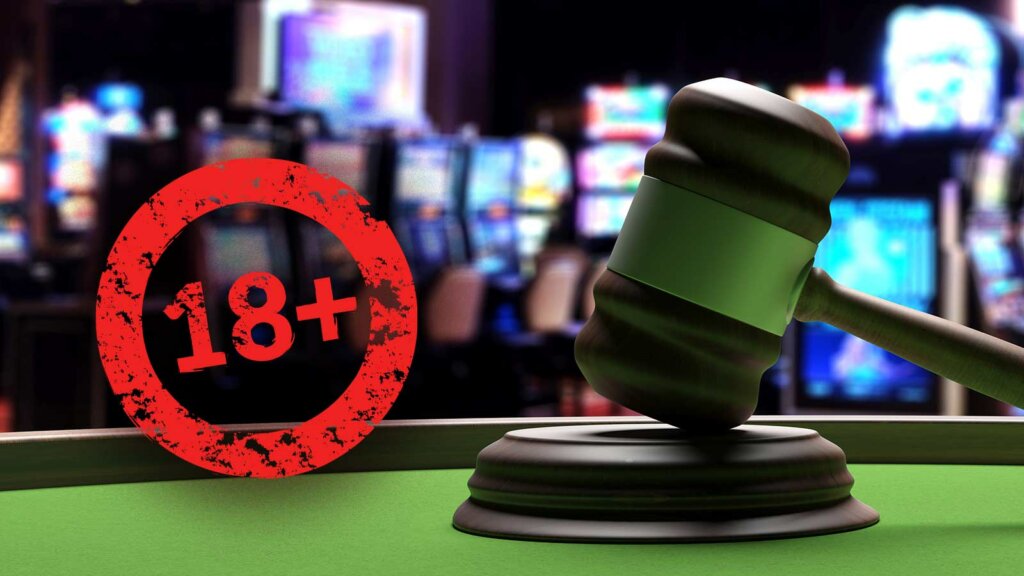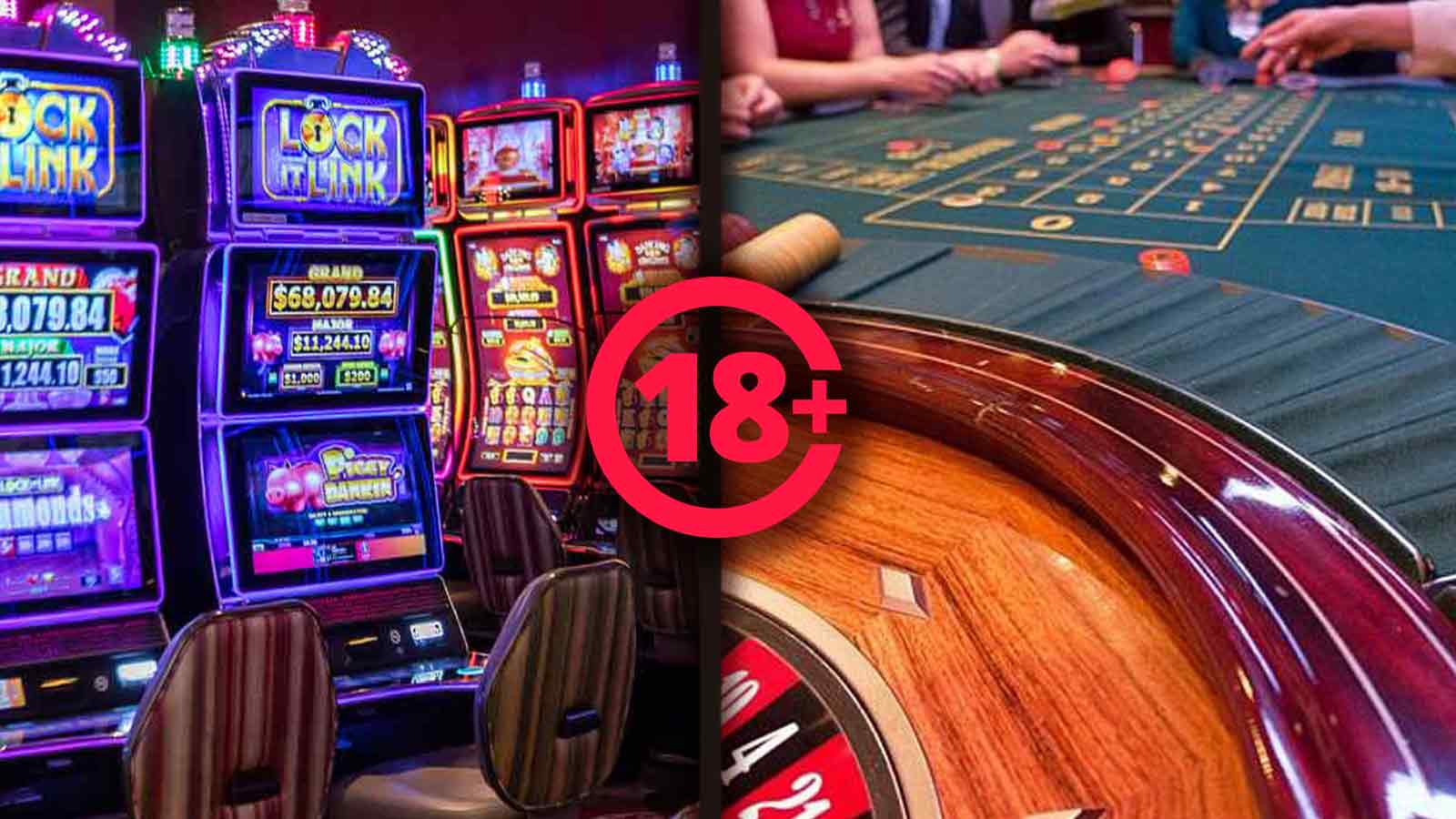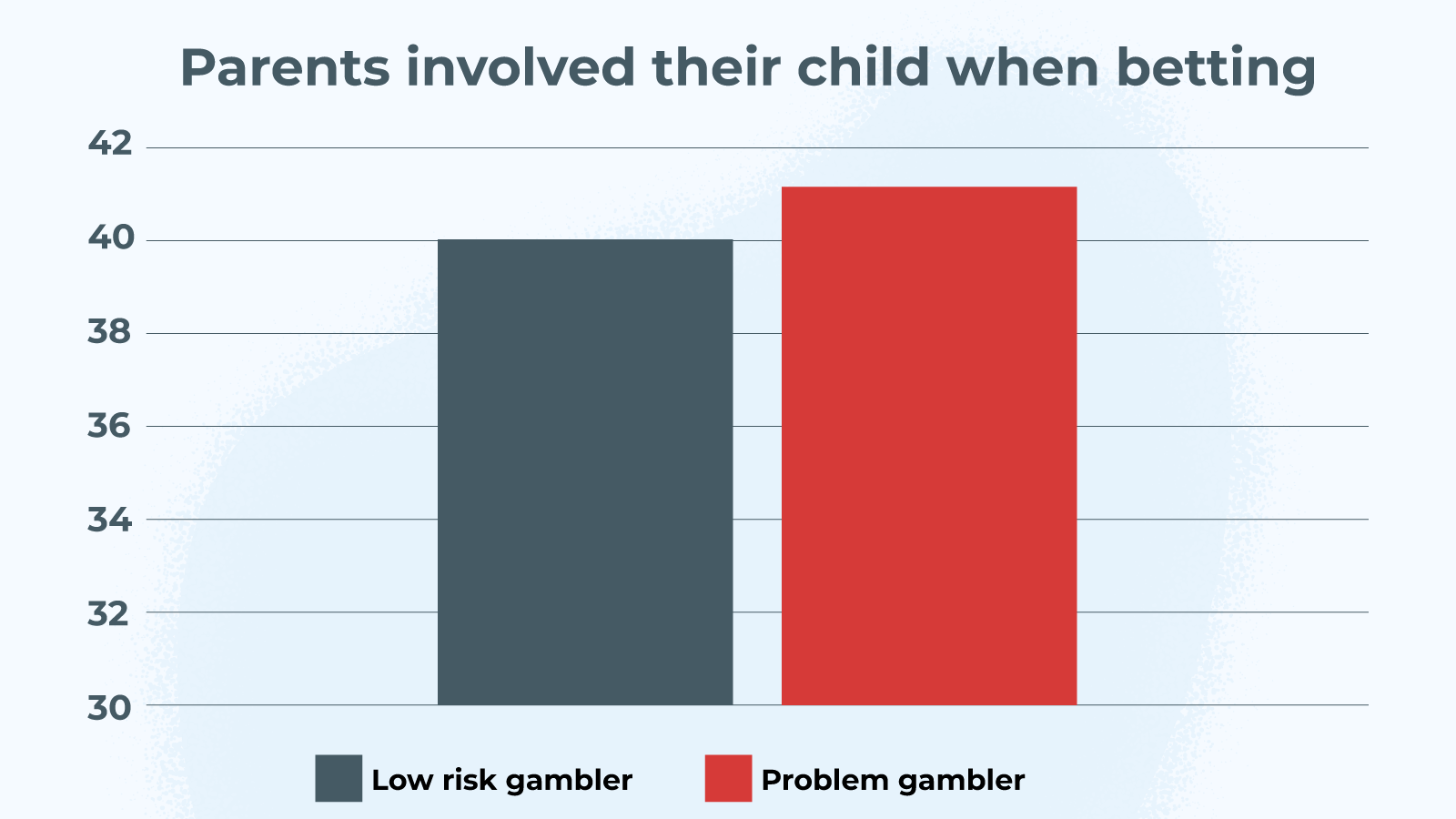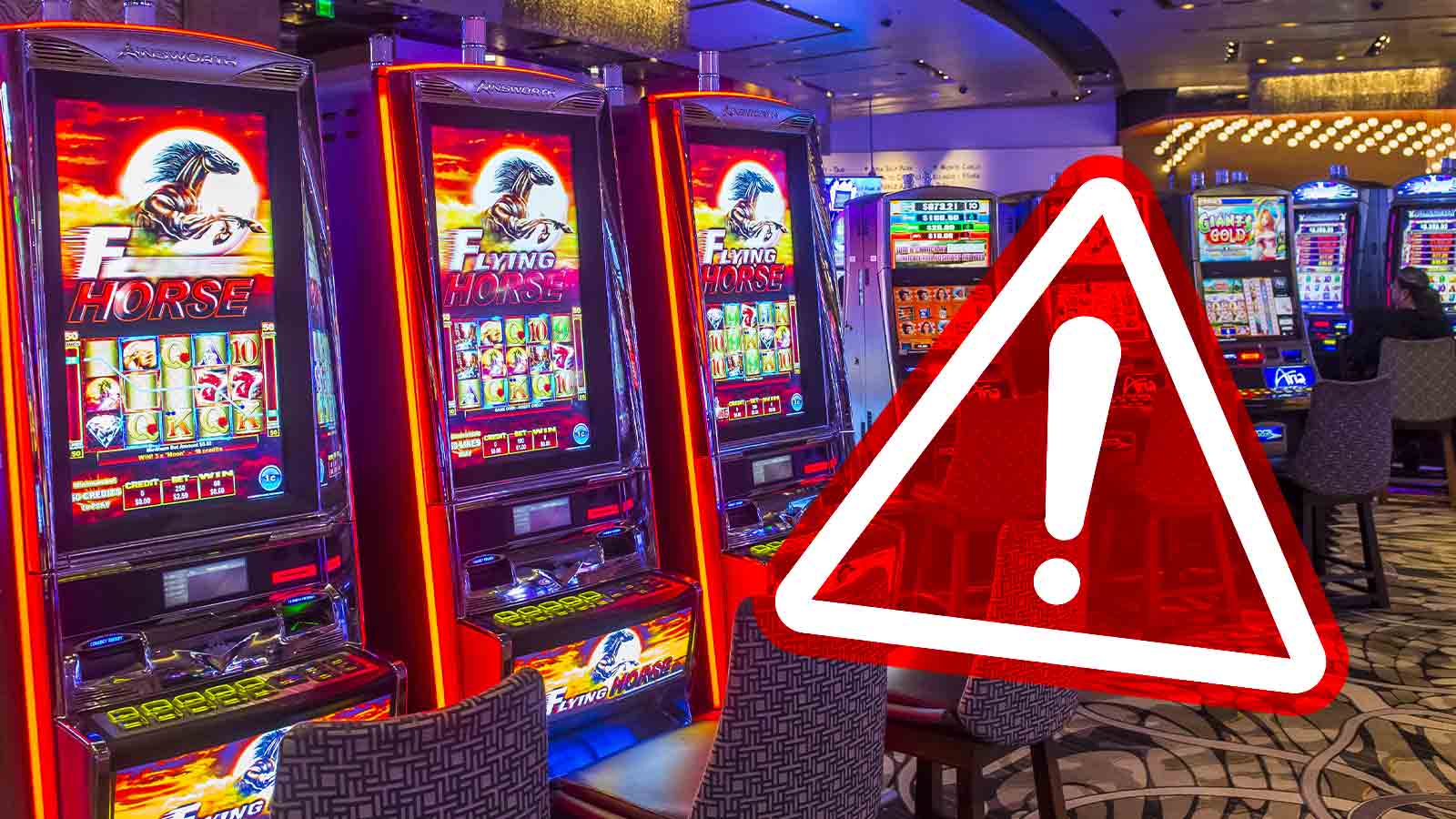
The UK's Strict Gambling Age Limits Fully Explained
All the information in this page was checked by:
Every piece of information we present is rigorously verified by our team of experts using multiple credible sources, ensuring the highest level of accuracy and reliability.
We have paid partnerships with the online casino operators featured on our site. We may also earn commissions when users click on certain links. However, these partnerships do not affect our reviews, recommendations, or analysis. We remain impartial and committed to delivering unbiased gambling content. For more details, visit our Advertiser Disclosure page.
The UK gambling age is 18 for all forms: casinos, lotteries, sports betting. Casinos must verify age via ID checks. Underage gambling leads to fines and bans. Learn all you need to know to protect your children from a young age, and what methods work way worse than you’d expect.
- The reality of underage gambling and general knowledge
- The legal gambling age in the UK
- Gambling age versus youth gambling
- The Psychological Impact of Gambling on Young Adults
- Legal gambling and casino game type
- Gambling regulatory bodies
- What happens if you get caught gambling under 18 in the UK?
- Role of Parental Control and Family Education in Preventing Youth Gambling
- The Future of Gambling Legislation and Youth Protection
- Legal Methodology
The Reality of Underage Gambling and General Knowledge
Despite strict gambling age laws in the UK, a surprising number of adults underestimate the gravity of underage gambling. Recent surveys found that 8 out of 10 adults are unaware of the severe mental, physical, and financial consequences that can result when those under 18 engage in gambling activities prematurely. Moreover, they don’t know the legal consequences their children and themselves will face.’ The earlier youth start gambling, the greater the likelihood these issues will arise and plague them for life. Yet the vast majority of adults fail to recognise the true dangers underage gambling poses.
The Legal Gambling Age in The UK
| Country | Online casino age limit | Land-based casino age limit |
|---|---|---|
| England | 18 | 18 |
| Scotland | 18 | 18 |
| Wales | 18 | 18 |
| Northern Ireland | 18 | 18 |
‘ As a general rule, players must be at least 18 to participate in gambling activities. This applies to all countries that are part of the United Kingdom. However some well-known land-based casinos in the UK impose a 21 limit at the entry, to ensure their clients are more experienced with money. Anyone who tries to break the law (be it a player or casino operator) will receive severe sanctions.
How old do you have to be to bet in Northern Ireland?
Since gambling in Northern Ireland is regulated separately from UKGC and implies other laws. Nonetheless, the legal age still remains 18 years old.
Gambling Age Versus Youth Gambling

Can gambling be disguised as gaming?
In some cases, yes! Many games nowadays have loot boxes and skins which players can either buy or win along the way. Almost all video games have a gamification procedure that allows players to choose between hard-working to gather the items and money for the skin or power needed, or to add their parents’ cards and buy with real money.
But there’s a catch!
These features are designed to change the design of your avatar or to receive some weapons that you can use throughout the game. Naturally, the idea behind them is to make you unlock more and more features without taking into account the risks that come with them because you don’t actually know what you will get.
The same principle is found in Slot games!
In those cases, you spin the machine and hope to earn something, according to the Random Number Generator. Although, for now, the link between video games and gambling hasn’t been explored exhaustively, many have noticed that loot boxes and skins are a form of gambling. They enable the idea of reward, conditioned by risk-taking (either with money or for free). This compels young people to keep going until they find a satisfactory feature that fits well in their gameplay.
The Psychological Impact of Gambling on Young Adults
Research in neuroscience and psychology offers illuminating insights into how gambling can affect the still-maturing brains of young adults, shaping their decision-making processes and emotional regulation in ways that merit a closer examination.
The Brain at a Crossroads
During young adulthood, the brain undergoes critical developmental processes, with the prefrontal cortex—which plays a key role in decision-making, impulse control, and risk assessment—being one of the last areas to mature. This developmental stage makes young adults particularly susceptible to the allure of gambling, which often promises quick rewards and intense emotional highs. The thrill of the gamble can lead to the release of dopamine, a neurotransmitter associated with pleasure and reward, reinforcing the behavior and potentially setting the stage for problematic gambling habits.
Decision-Making Under the Influence
The act of gambling can also skew the decision-making abilities of young adults. Faced with choices that have immediate rewards versus long-term consequences, individuals in this age group may be more inclined to opt for the former, thanks to the incomplete maturation of their prefrontal cortex. This propensity is exacerbated by gambling activities, which often design experiences that emphasize short-term gains and downplay potential losses. Consequently, young adults may develop cognitive biases that cloud their judgment, making it difficult for them to assess risks accurately and make prudent decisions.
Emotional Consequences and Stress Responses
The psychological impact of gambling extends beyond cognitive effects to include emotional and stress-related responses. Young adults, navigating the transition to independence, may view gambling as a means to socialize or escape from stress. However, the unpredictability and potential financial losses associated with gambling can, paradoxically, amplify stress levels and lead to emotional distress. Over time, this cycle of gambling as stress relief and the subsequent increase in stress can contribute to the development of gambling disorders.
Legal gambling and casino game type

Slots
| Game category | Age limit (online & land-based) |
|---|---|
| Classic Slots | 18 |
| VR Slots | 18 |
| 5-Reel Slots | 18 |
Slots are the most encountered game category both online and in land-based venues. They are regarded as games of chance because there is no set strategy to ’beat the system’, so you at most rely on luck. They fall into A to C categories, depending on their stakes. Before you engage in such games, it’s important to take a few steps back and inform yourself about the best Slot sites on the market, along with some tips on how to make the most of them. Don’t worry, the CasinoAlpha team created a special guide to help you along!
Table Games
| Game category | Age limit (online & land-based) |
|---|---|
| Roulette | 18 |
| Poker | 18 |
| Blackjack | 18 |
Brick-and-mortar casinos have a wide variety of table games available, such as Poker, Roulette, Blackjack, Baccarat, Craps and so on. On the other hand, an online gambling platform offers you the chance to play these games in two distinctive ways:
- Against a software;
- Against other real-life players in Live Dealer games.
Once again, regardless of what type of platform you are using, it must be licensed by a competent authority.
Gambling under 18 – what games can you legally play as a minor?
As you have already seen, you must have 18 to be able to participate in gameplay. However, we found some exceptions. The most frequent one is the category D gaming machine, which is comprised of:
- Fruit machine;
- Coin pusher;
- Crane grab machine.
Each has a predetermined stake that shouldn’t be exceeded. Up until 2021, the legal age for National Lottery was 16 and above. This year, however, the requirements changed to at least 18 years old, as a way to impede the early onset of potential addiction. If the category D machine is safe to be accessed by people of all ages, we cannot state the same about one of the most common games, Bingo. According to the UKGC, you can enter a place that has Bingo, even if you are a minor, but you are not allowed to engage in any gambling activities. Yet, these clubs would generally rather not accept people under 18. Tips
- Recent years have brought multiple changes in the UK legal system. The information you extract from different auxiliary sources may not be up-to-date.
- We are always attentive to the newly established provisions and constantly refresh our pages. You can count on us for providing reliable information according to the market standards.
Effects of gambling at an early age

- Since gambling may have such serious effects upon the child’s personal development, it is crucial to take some steps against minor gambling addiction and know how to prevent the child’s access to such websites.
- Our experts put their knowledge to good use and created a guide that teaches you what various programs you can use to block your child’s access to these sites, as well as multiple support groups and agencies.
Gambling Regulatory Bodies

We can divide them into two categories:
- UKGC for England, Scotland and Wales (that runs under the Gambling Act 2005);
- Betting, Gaming, Lotteries and Amusements (NI) Order 1985 specifically for Northern Ireland.
- The Isle of Man Gambling Supervision Commission (GSC) regulates gambling on the Isle of Man.
They apply to brick-and-mortar and online casinos and also include betting and the national lottery. As of September 2021, Northern Ireland has been taking steps to give the current Bill the status of law. One interesting provision relates to using the funds earned by casinos to support institutions that deal with gambling addiction.
How do online casinos check if you have the legal gambling age?

How do land-based casinos check if you have the legal gambling age?

What Happens if You Get Caught Gambling Under 18 in The UK?

What happens to the player?
The United Kingdom is very strict when you disobey any law that concerns gambling. Its yearly national goal is to come up with even more reliable and complex strategies to keep children and young people away from this type of activity. Thus, the Gambling Act 2005 stipulates the various consequences you may face, depending on the degree of your offence, followed by the UKGC. Be aware that these range from fines to imprisonment. In case players engage in any actions that may look suspicious, the gambling platform will close their accounts and even permanently ban them from that particular website and its sister sites.
What happens to the casino operators?

Role of Parental Control and Family Education in Preventing Youth Gambling
In the fight against underage gambling, the role of parental control and family education cannot be overstated. As the first line of defense, parents and guardians possess an unparalleled influence over their children’s attitudes and behaviors towards gambling.
The Power of Parental Guidance
Parental guidance plays a pivotal role in shaping a child’s understanding and approach towards gambling. Open conversations about the risks and realities of gambling, grounded in trust and understanding, can demystify the subject and equip young individuals with the knowledge to make informed decisions. It’s not just about saying “no” but explaining the “why,” thereby fostering a healthy skepticism towards gambling activities.
Family Education as a Preventive Measure
Family education extends beyond discussions at the dinner table. It involves setting a positive example through one’s own gambling behaviors or lack thereof, establishing clear and consistent rules about gambling activities, and utilizing parental controls on digital devices to restrict access to gambling websites and apps. Moreover, engaging in family activities that promote other forms of entertainment can help diminish the allure of gambling as a pastime.
Schools and Communities: Extending the Safety Net
The responsibility of preventing underage gambling also falls on the shoulders of schools and communities. Through the incorporation of gambling awareness programs into the curriculum, schools can play a significant part in educating young minds about the dangers of gambling. These programs can offer simulations and real-life stories that bring the consequences of gambling to life, making the lessons more relatable and impactful. Communities and regulatory bodies, recognizing the gravity of this issue, have initiated awareness campaigns aimed at both parents and children. These initiatives often include workshops, seminars, and resource materials that provide valuable information on preventing underage gambling. By fostering a community-wide dialogue on this topic, these efforts help to create an environment where gambling is understood for what it is—a form of entertainment that carries significant risks when not approached responsibly.
A Call to Action for Parents and Guardians
The fight against underage gambling is multifaceted, requiring the cooperation of parents, guardians, educators, and regulatory bodies. Parents and guardians, in particular, are urged to:
- Educate themselves about the signs of gambling addiction and the digital landscape of gambling.
- Engage in open and honest discussions with their children about gambling.
- Utilize available resources and tools for monitoring and controlling online activities.
- Encourage and model alternative, healthy entertainment options.
The Future of Gambling Legislation and Youth Protection
As the digital age advances, the landscape of gambling evolves, prompting lawmakers and regulators to adapt continually. The future of gambling legislation, especially concerning youth protection, is poised at the cusp of significant transformation.
Emerging Trends in Gambling Regulation
One of the most notable trends is the increasing integration of technology in regulatory practices. Advanced age verification technologies, including AI and biometric verification, are set to become more prevalent, ensuring that underage individuals cannot bypass the system. Furthermore, there’s a growing emphasis on collaboration between gambling platforms and tech companies to develop safer gambling environments through innovative software solutions.
Predictions for Legislative Developments
Predictions for future legislative developments suggest a tighter regulatory framework with more rigorous enforcement mechanisms. We may see laws mandating more detailed reporting from gambling operators on their efforts to prevent underage gambling, alongside stricter penalties for breaches. Additionally, there could be an expansion in the definition of gambling to include emerging forms like loot boxes and other virtual assets, which have been areas of concern regarding youth engagement.
Proposed Laws Aimed at Youth Protection
Several proposed laws are aiming specifically at enhancing youth protection in the realm of gambling. These include:
- Introduction of Dynamic Age Verification Systems: Proposals suggest the mandatory implementation of dynamic age verification systems that continuously verify a user’s age, particularly in online gambling platforms.
- Educational Programs as a Legal Requirement: There’s a push for laws that would require gambling operators to fund and facilitate educational programs aimed at young people, educating them about the risks associated with gambling.
- Limiting Advertising Exposure: Proposed legislation aims to significantly reduce the exposure of children and young adults to gambling advertising, particularly online and during prime viewing times on television and other media.
The Role of International Cooperation
The global nature of the internet and digital gambling platforms calls for international cooperation in the regulation of gambling to protect young people effectively. Future legislation might include international agreements and shared regulatory frameworks to tackle underage gambling across borders.
Looking Ahead
The trajectory of gambling legislation and youth protection is clear: a move towards more stringent regulations, enhanced technological measures, and an emphasis on education and prevention. As society becomes increasingly aware of the dangers posed by underage gambling, both lawmakers and the gambling industry must prioritize the protection of young individuals. By doing so, we can ensure that the future of gambling is not only exciting and engaging but also safe and responsible for all.
Legal Methodology

Primary Sources – When in doubt, go to the officials
Our first stop was the Gambling Act 2005, which addresses the casino industry in England, Wales, and Scotland. It provided us with essential information about how each and every type of game is being monitored, considering the legal gambling age in the UK or the different levels of offences and their repercussions, among others. Then, we focused on the latest provisions released by the United Kingdom Gambling Commission in all three countries mentioned above. Now, since the gambling market in Northern Ireland is regulated by the Betting, Gaming, Lotteries and Amusements (NI) Order 1985, our team also analysed its current policies and impact throughout the years. If you encounter a casino related aspect that raises some questions regarding its legal status, we advise you to first resort to official regulatory institutions and even contact them, if necessary. We applied this principle when we learnt how to manage a casino dispute, especially concerning various ADR Agencies that UK players may contact if their rights are being infringed.
Secondary Sources – external information is key
Besides the official documents and current legislation presented earlier, CasinoAlpha’s team of experts also consulted various press releases and articles that debate this matter locally, within the United Kingdom, but also offer a global perspective. We also wanted to extend our analysis to other domains related to gambling, such as gaming, to discern how they influence each other.
References
- Gambling and gaming: Children as young as 11 betting online;
- United Kingdom Gambling Commission;
- Gambling Act 2005;
- A reading list on gambling policy, legislation and reform in Great Britain and the Republic of Ireland;
- Age restrictions in bingo premises;
- What is a Category D gaming machine?;
- Betting, gaming, lotteries and amusements;
- 2016 Northern Ireland Gambling Prevalence Survey;
- Exploring the gambling journeys of young people;
- The Betting, Gaming, Lotteries and Amusements (Northern Ireland) Order 1985.

